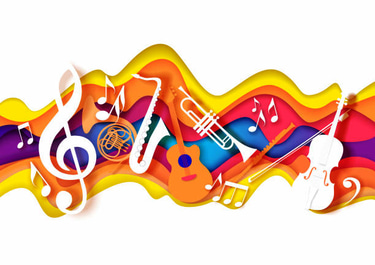

I am a “Classic Rock Junkie” and Audiophile who has lived with the “Sounds of Music” (not the movie) since birth, as my family is part of a Music Ensemble. My first real job was at a large Music Store that sold all the new Rock releases and had a large selection of used equipment (my collection of 45s was over 2,000). I attended the University of Wisconsin and got a degree in Electronic Engineering in 1965 and a Minor in Music Appreciation. I became integrally involved in the music industry after managing three rock bands at the University of Wisconsin that covered all the top releases at the time.
I will be able to succeed in fulfilling my Bucket List by creating the "Tuition Free" Asheville School of Classic Rock, where we teach Wannabee Musicians and Engineers a new element of Music Theory III called "Listening." We feel that by listening to the Sounds of a newly written Song, it can be "Remastered" by using "Sound Innovation" approaches to refine it for publishing. Since we are using Classic Rock as the basis for studying Tracks, I needed a Definition to steer lessons properly.
Therefore, my goal has been to write a complete definition of Classic Rock, as I still cannot find a complete one during my research. As an “Earworm” and one who has been directly involved in Sound Engineering since 1975, I know that my Draft definition will be analyzed by the top Audiophiles in the World… and I know it will get a rise out of Music Enthusiasts, which will help me refine this work in progress. I founded Classic Rock Turntables to build a Community of Classic Rock and other Music enthusiasts to deal straight forward with Issues that the Music Rags publish daily… we will have Forums for the Top 100 Classic Rock Bands and others applicable to Community interests. We aim to be The definitive source of the views and opinions of the “People.”
Final Draft- The “Definition of Classic Rock”
The evolution of classic rock sounds can be traced back to the fusion of bluesy, jazzy elements, often referred to as "Blazz," which influenced Artists and Bands to innovate with the electric guitar. This evolution led to the development of innovative techniques such as blending intros, riffs, and understandable melodies, creating a diverse range of sounds infused with newfound energy. Early sounds transitioned from a bluesy foundation to more complex compositions by incorporating chords, wider scales, and advanced improvisational techniques.
Although some crossovers may differ, most Classic Rock Tracks employ a strong backbeat, usually in a 4/4 rhythm base and using trickier time Signatures… Tracks often feature innovative Sound effects such as distorting the Guitar’s signal path, adding sustained, harmonic Overtones, and inharmonic Overtones, by Clipping… a sound that is called “warm” and “dirty” but can be “Stonesy” like the Rolling Stones.
Classic Rock Characteristics include the following:
The Bass Guitar, whether with 4, 5, 6, or 12 strings as seen in bands like the Byrds and Led Zeppelin, plays notes an octave lower, providing a deep, foundational sound and a backbeat that contributes to achieving a wider range of tones. This instrument delivers over-driven, rich, and expressive sounds that enhance the overall texture of Classic Rock tracks. On the other hand, guitars in classic rock music contribute powerful riffs, melodic solos, and dynamic fills that enrich the sound. They play a crucial role in creating memorable hooks, intricate harmonies, and captivating melodies that define the song's character and drive its emotional impact. Techniques like power chords, palm muting, string bending, and vibrato are commonly used on guitars in Classic Rock tracks to set the tone for the music, adding layers of complexity and intensity.
Usually features a Standard Drum Kit: Bass, Snare, Toms, and Hi-hat Cymbals… Drums provide the most time-powerful and driving Rhythmic Foundation, Tonal Texture, and Depth, contribute to Emotional Intensity, and deliver Punch and strong Propulsive quality. They regularly use specialty, featured Electric Instruments such as Keyboards and Pianos, and Percussion Instruments... includes other String Instruments, Woodwinds, Diatonic Harmonicas, and other unique Autonomous Sensory Meridian Response Sounds (ASMR), which refers to a tingling sensation associated with positive feelings and relaxation. It is the "Sounds" that make Music viable!
Tracks feature iconic Instrumental Riffs and Fills, multiple versatile Guitars, Drums, Solos, and supportive Instrumentals... including, vocal-centric Song Structures, masterful Hooks, Backup Singers, and a wide range of Lyrical Themes. These Themes include Coming of Age and Growing up Issues, Love Relationships, Social and Political Issues, and Personal Reflections and Tales about Life. Singers of Classic Rock include Powerhouse Belters, Multi-octave Dynamic voices, highly Emotive Singers, and those with unique Timbres and Tones... it is all about their Sounds, coupled with Lyrics, that tell a good Story. Also, let us not forget Body Language that conveys a state of Excitement and, in some Tracks, Aggression Sounds..
Classic rock encompasses a diverse range of Bands and Artists, with some playing tracks that could fit into different genres and others being known as "one-hit wonders" within the classic rock realm. Classic Rock Artists and Bands occupy the middle ground of rock music sounds, situated between hard rockers like Led Zeppelin and Aerosmith at the top range and crossover artists like the Beatles and Eagles who blend elements of R&B, country, and blues at the bottom range. Classic Rock is not just a genre but a form of language, a defined lifestyle, and a unique perspective through which many individuals perceive the world around them.
Although Classic Rock was not formalized as a term until about 1980, it had an easily identified group called Boomers… and their Children. It was intensely popularized by Radio Stations seeking to increase revenues (some 1,700 Stations in the 80s). As the number of Subgenres of Progressive Rock expanded, the popularity of Classic Rock Music began to diminish somewhat… but it lives on still with over 800 Stations, using the Classic Rock moniker after their number where each plays from 60 to 80% of Classic Rock Tracks - (none play whole Albums).
Over time, the List of Subgenres of Rock Music is about 1,700, and 90+% are only played by Cult individuals… they calculate that only about 30 or so have survived commercially. These Music Genres - Blues, Jazz, Blazz (Blues and Jazz Fusion), Pop, Country, Christian, R&B, Hip-hop, Latin, Hard and Metal, and Folk - have not lost their luster.... while many alternative Genres have simply faded away.
Classic Rock Music is “Timeless” and is an “Art-that-stands-the-test-of-Time."
************
All Musicians and Fans of Rock n Roll are invited to participate in a "challenge" to create a unified “Definition of Classic Rock Music”… We want to unite the huge numbers of readers of Music Rags that publish definitions, make lists of rankings, and write reviews without allowing us to influence their words.
You will have the opportunity to share your Comments and have them reviewed by our Team to create a revised Draft that will be updated 2 more times and officially published on April 2, 2024. To receive a personal copy of the Draft and to send your comments to our database for collation, you must sign up for the Classic Rock Chronicle, the free official Newsletter of Classic Rock Turntables.com... come along and participate in our Journey to celebrate The wonders of Classic Rock Music... and to support the dreams of Wannabee Musicians in the "Tuition-free" online program at Asheville School of Classic Rock. Rock On ♪♪♪
Well Friends of Classic Rock, if you made it this far, the methodology and criteria I used in making the Draft are included in an attachment for your information
Note: You may copy this for your personal use and mark it up to meet in your Group of CRockers, but you cannot violate the US Copyright laws.… So Mates, if you want to submit Your or your Groups “Comments”, you must sign up for our Newsletter to get your email address into our Database… so you can receive a copy that you can mark it up with your Opinions about the Content. My Team will review ALL submissions, and a revised Draft #2 will be sent to your email address…
I truly hope you will join our Community and support the Asheville School of Classic Rock… thank you in advance… Willie Rock On ♪♪♪
Copyright © 2024 Classic Rock Turntables.co
All rights reserved
